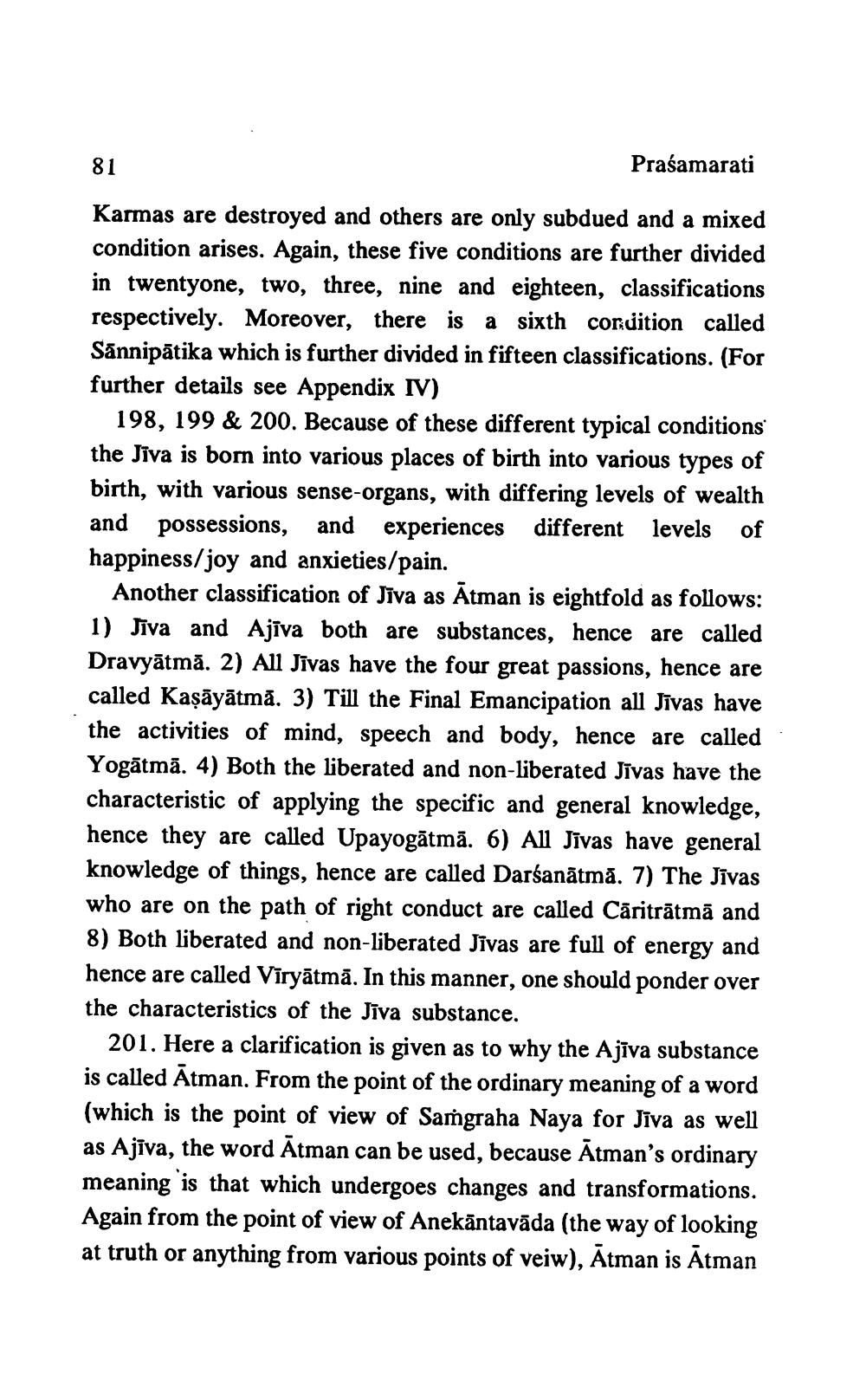________________
81
Prasamarati
Karmas are destroyed and others are only subdued and a mixed condition arises. Again, these five conditions are further divided in twentyone, two, three, nine and eighteen, classifications respectively. Moreover, there is a sixth condition called Sānnipātika which is further divided in fifteen classifications. (For further details see Appendix IV)
198, 199 & 200. Because of these different typical conditions the Jiva is born into various places of birth into various types of birth, with various sense-organs, with differing levels of wealth and possessions, and experiences different levels of happiness/joy and anxieties/pain.
Another classification of Jīva as Atman is eightfold as follows: 1) Jīva and Ajīva both are substances, hence are called Dravyātmā. 2) All Jīvas have the four great passions, hence are called Kaṣāyātmā. 3) Till the Final Emancipation all Jīvas have the activities of mind, speech and body, hence are called Yogātmā. 4) Both the liberated and non-liberated Jīvas have the characteristic of applying the specific and general knowledge, hence they are called Upayogātmā. 6) All Jīvas have general knowledge of things, hence are called Darśanātmā. 7) The Jīvas who are on the path of right conduct are called Caritrātmā and 8) Both liberated and non-liberated Jīvas are full of energy and hence are called Vīryātmā. In this manner, one should ponder over the characteristics of the Jīva substance.
201. Here a clarification is given as to why the Ajiva substance is called Atman. From the point of the ordinary meaning of a word (which is the point of view of Samgraha Naya for Jīva as well as Ajiva, the word Atman can be used, because Atman's ordinary meaning is that which undergoes changes and transformations. Again from the point of view of Anekāntavāda (the way of looking at truth or anything from various points of veiw), Atman is Ātman




